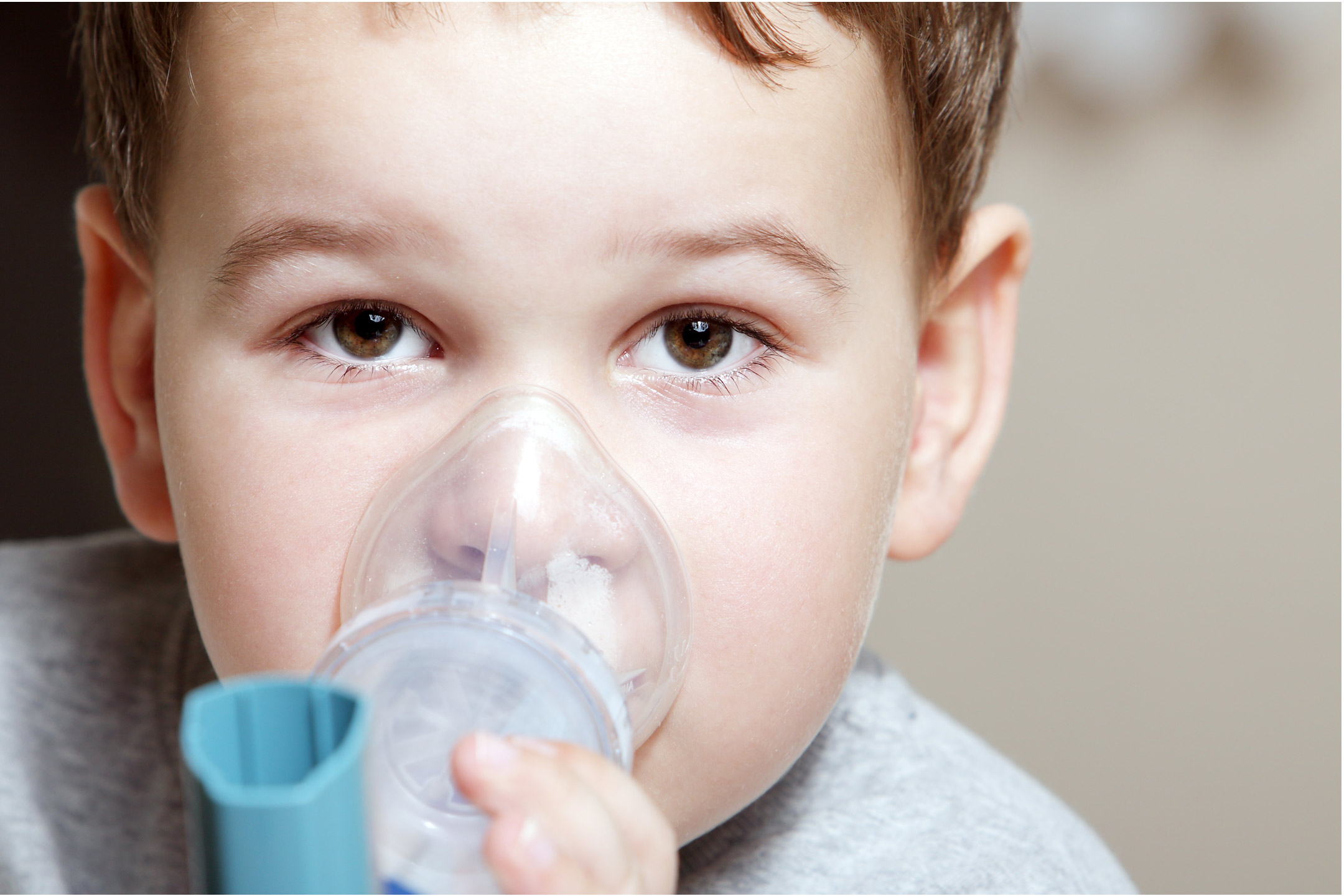
11 Dec 5 Tips to reduce Asthma anxiety in kids
A child’s asthma can make both themselves, and their parents anxious, says Dr Gemma Sicouri. So what can a parent or carer do to help?
With the hazardous air quality taking over our cities skylines, parents of children with asthma may be particularly concerned.
Asthma is one of the most common chronic illnesses in childhood, affecting over 10% of children worldwide. It is characterised by lower airway inflammation and recurrent flare-ups, often triggered by a range of irritants such as viruses, allergens, pollens arising from thunderstorms (also known as thunderstorm asthma) and poor air quality resulting from bushfire smoke. This causes the airway’s smooth muscle to contract, leading to symptoms of wheezing, breathlessness, chest tightness and coughing. According to a report by the Australian Institute of Health and Wellbeing, asthma is the leading cause of healthy years lost due to disability in children ages 5-14 years. In the most severe cases, asthma can lead to death.
Apart from understanding asthma symptoms, avoiding triggers, and adhering to medication, research also suggests that learning about anxiety can help to keep your child’s asthma under control. This is because when people have asthma or other chronic illnesses, they may develop fears about their illness or feel that they are not in control of their symptoms. This makes them stop doing the things they want to do and impacts on their confidence. When children are not feeling good about themselves, they are less able to learn skills to manage their asthma and can become more afraid of their asthma symptoms.
There are five simple things that parents can do to help reduce the impact of asthma and the worries on you and your child’s life.
Tip 1 – Follow your child’s doctor’s medical advice
Whilst there is no cure for asthma, with good management, children can live normal healthy lives. This means following your child’s doctor’s advice on medication, avoiding triggers and having an up-to-date asthma action plan.
Tip 2 – Develop your child’s independence and confidence in managing their asthma
Encouraging children to take responsibility for their asthma management not only gives them confidence in managing their asthma, but also gives you confidence that they will be able to cope when you’re not available. The first step may be to openly talk to children about their asthma and help them to understand what it is and what the known risks are. Parents could also develop a medication plan with their child and gradually increase their responsibility for taking and managing their medication. This encouragement could come in the form of rewards, physical affection or specific praise. For example, “well done for remembering to take your medication today” is better than “good job today”.
Tip 3 – Encourage independence and courageous behaviours in your child
Parents may be extra vigilant to their child’s asthma symptoms, which may lead them to want to protect their child from situations to reduce the risk of their child having an asthma attack. While in some circumstances this response is both adaptive and helpful (for example, avoiding bushfire smoke), in other circumstances how we parent may add to our child’s level of anxiety. If parents protect their child from situations which do not represent a real threat, such as taking a test or meeting new people, then children never learn that they can cope with that situation. Or that the bad thing they are worried about may not actually happen. This may serve to increase the child’s anxiety and reduce their confidence to face situations which may, in fact, be safe. The key to facing asthma-related fears is to remember that there are limits to children’s activity level, so parents need to help their children realise the fine balance between facing their fears and staying within safety limits.
Tip 4 – Distinguish between asthma and anxiety symptoms
Learning about how to manage anxiety helps to not only give children confidence in themselves, but help them distinguish between asthma and anxiety symptoms. Research shows that wheezing, coughing and mucus production distinguish asthma from anxiety symptoms. By observing whether these symptoms occur you can help your child tell apart an asthma attack from heightened anxiety and respond accordingly.
Tip 5 – Look after yourself
Parenting a child with asthma can be stressful. It is important to take care of yourself by spending time doing things you enjoy.
Dr Gemma Sicouri is a Research Fellow and Clinical Psychologist at the Centre for Emotional Health in the Department of Psychology at Macquarie University. Her research is focused on understanding and treating anxiety and related disorders in young people.

